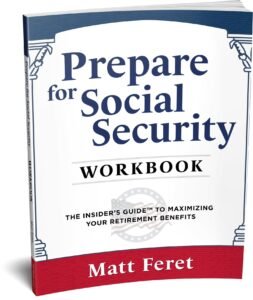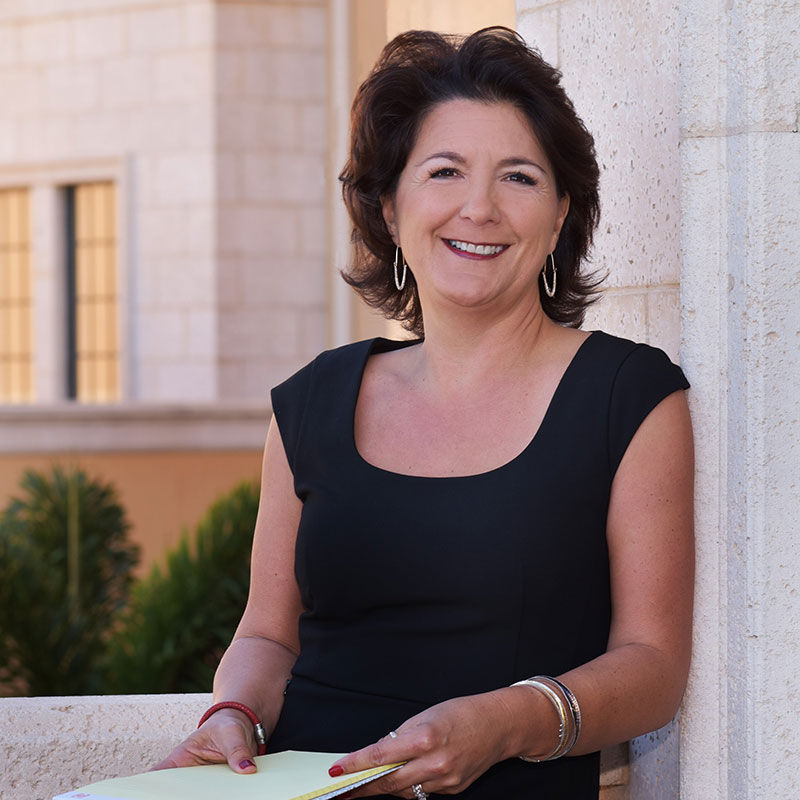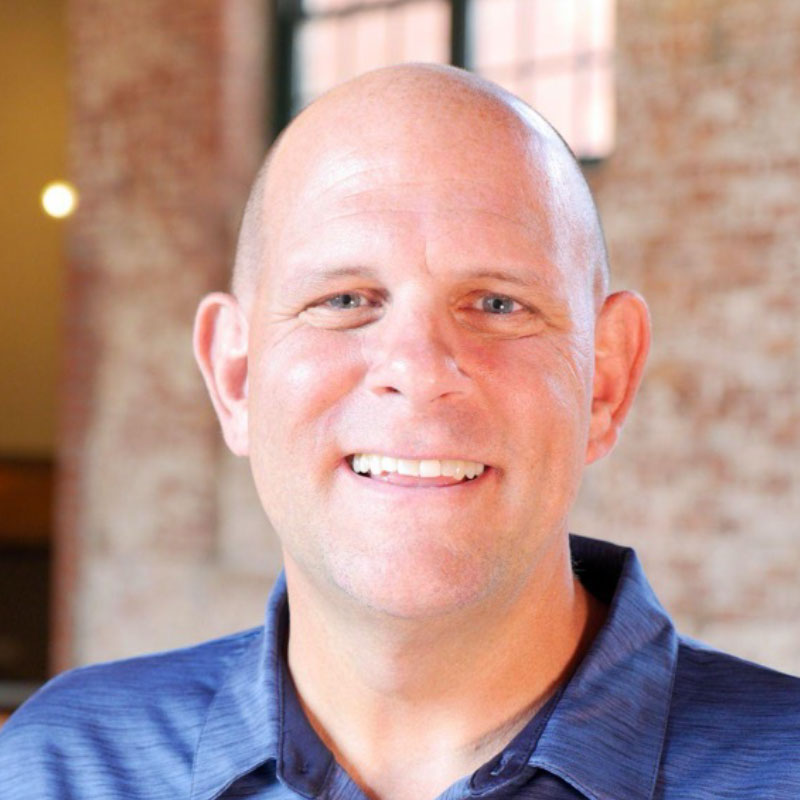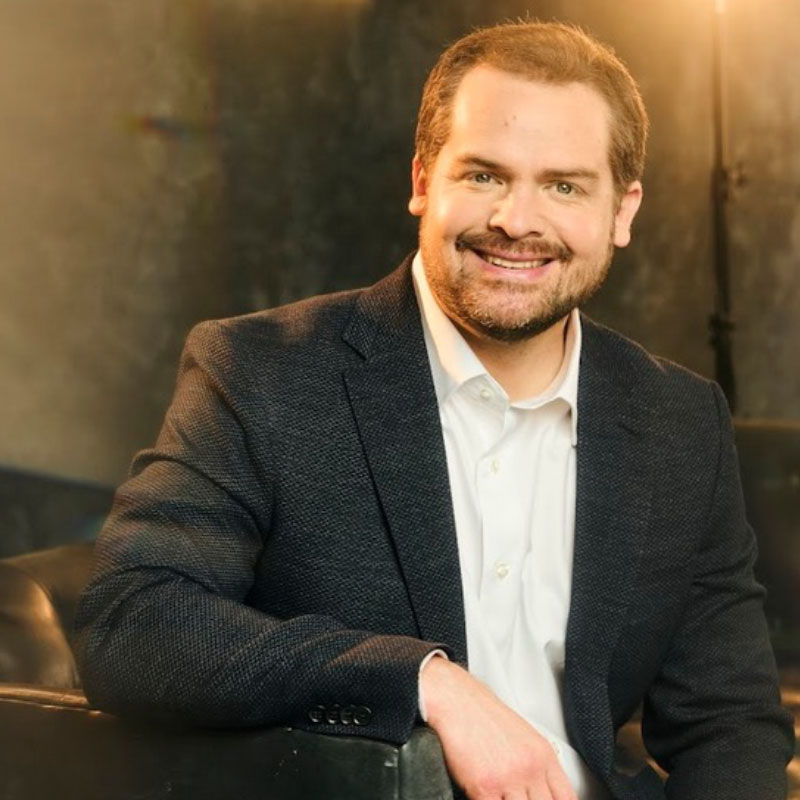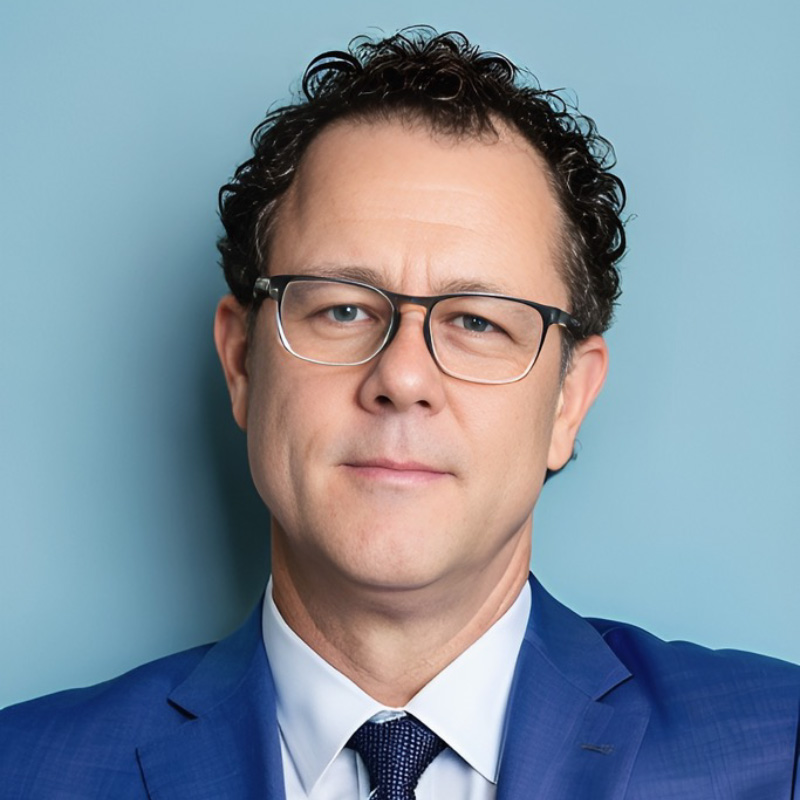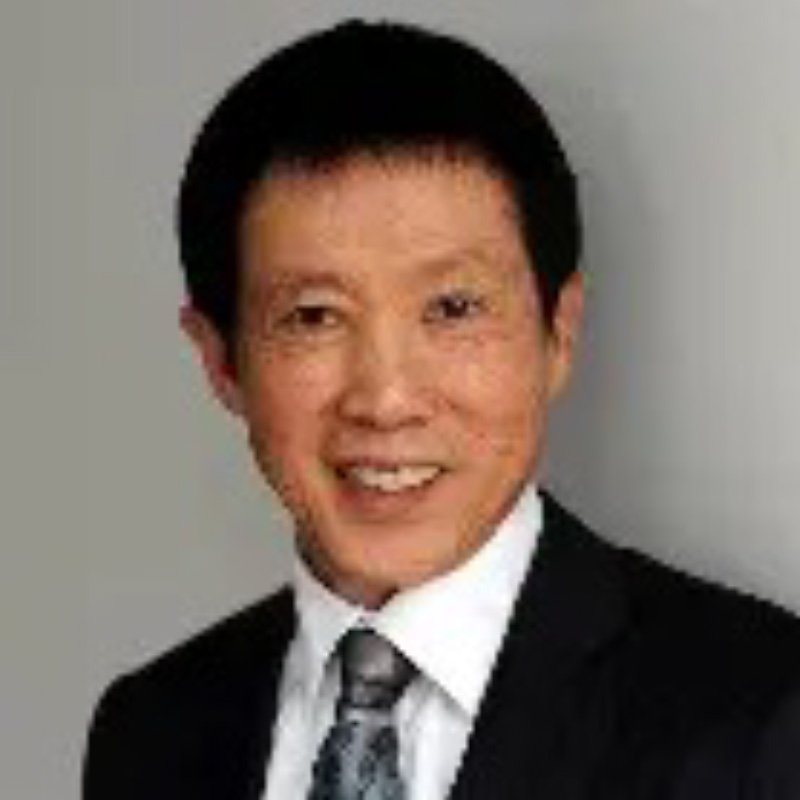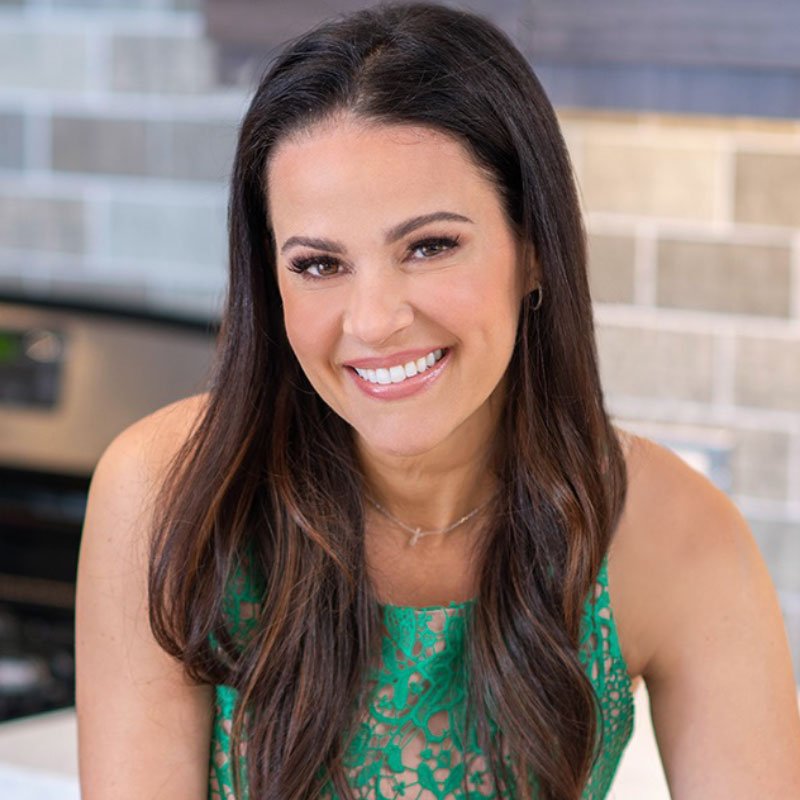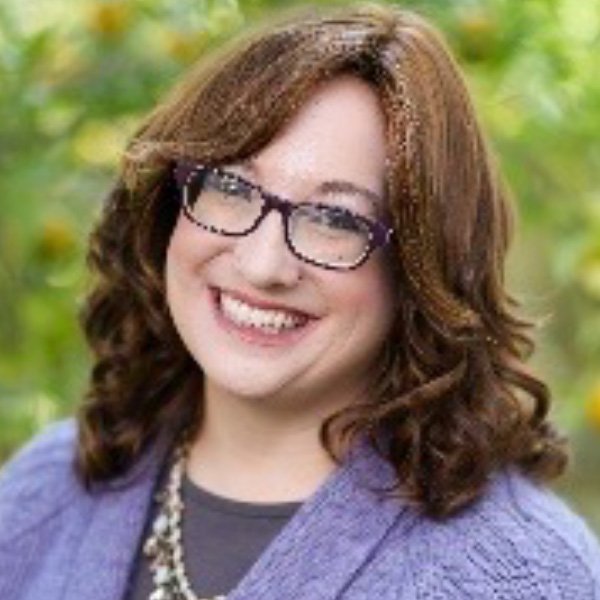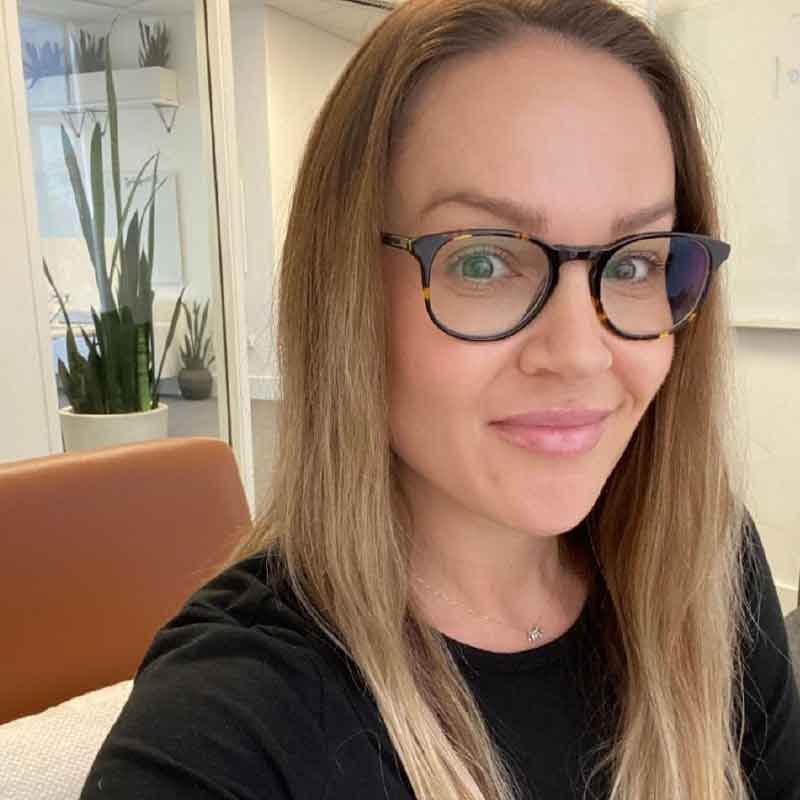#068
Share This:
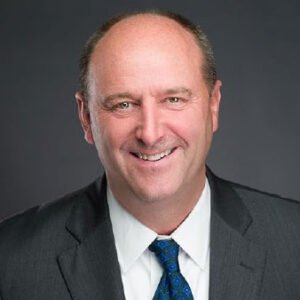
In this episode of The Matt Feret Show I interview Tom Hine, a wealth advisor and author. We discuss the relationship between wealth and wellness, and how taking care of one’s health can impact financial planning. Tom also talks about the need for individuals to find doctors and financial advisors who understand the connection between health and wealth. Finally, we discuss his book The Balanced Wealth Approach: Secrets to Living Long and Living Rich which provides insights and strategies for achieving a balanced and wealthy life.
If you enjoyed this episode of The Matt Feret Show, you may enjoy:
How to Use Life Insurance While You’re Still Alive with John Ensley, ChFC
Todd Morrissey on Medicare, HSAs, MSAs, IRMAA and Financial Planning
Listen to the episode on Apple Podcasts, Spotify, Deezer, Podcast Addict, Stitcher, Google Podcasts, Amazon Music, Alexa Flash Briefing, iHeart, Acast or on your favorite podcast platform. You can watch the interview on YouTube here.
Brought to you by Prepare for Medicare – The Insider’s Guide book series. Sign up for the Prepare for Medicare Newsletter, an exclusive subscription-only newsletter that delivers the inside scoop to help you stay up-to-date with your Medicare insurance coverage, highlight Medicare news you can use, and reminders for important dates throughout the year. When you sign up, you’ll immediately gain access to seven FREE Medicare checklists.
Quotes:
“You can't have happiness without your health, but you can't also have happiness without enough money to spend to enjoy with your friends and family. That intersection is happening faster and faster based on advances in financial technology and health and wellness and longevity. Both of those are absolutely escalating very quickly.”
“Look at your value system. What do you value more in your life? Do you value a big pile of money with not great health and maybe not great connections, or do you value enough money and good health and good connections with your family and friends? I would argue, that is a richer life.”
“Hopefully the majority of your listeners and viewers are going to be healthy, that's great. Make time to keep that regimen, because if you keep putting it off, someday the red alert button comes on and you’ll be forced to take time off to deal with issues that you could have prevented.”
#068
Selected Link from the Episode:
Host’s Links:
All Things Medicare: prepareformedicare.com
Decoding Social Security: prepareforsocialsecurity.com
My Written Works on Amazon: www.amazon.com/stores/Matt-Feret/author/B09FM3L4WW
The Matt Feret Show YouTube: www.youtube.com/@themattferetshow
Network with me on LinkedIn: http://www.linkedin.com/in/mattferet
Follow me on X: twitter.com/feret_matt
See behind the scenes on Instagram: www.instagram.com/matt_feret/
Join our community on Facebook: www.facebook.com/themattferetshow/
Guest’s Links:
Capital Wealth Management, LLC: https://www.capitalwm.com/meet-us
Tom Hine’s book: https://thebalancedwealthapproach.com/about-tom-hine/
LinkedIn: https://www.linkedin.com/in/hinetom/
Full Show Transcript:
Announcer:
This episode of The Matt Feret Show is brought to you by the Brickhouse Agency. Brickhouse is a boutique independent health insurance agency that focuses on finding the right Medicare coverage for folks across the country. Matt's wife, Niki, is the heart behind Brickhouse. She's great at making confusing things clear and is passionate about helping people find a Medicare insurance policy that suits their individual needs. To schedule a free one-on-one appointment with Niki or a member of her team, head on over to brickhouseagency.com or simply call (844-844-6565), and someone will help you schedule a phone call or a Zoom meeting. The consultation is free because the insurance companies pay Brickhouse, not you. There's never any pressure or obligation to enroll. Your clearer, simpler Medicare journey is just a call or click away. brickhouse agency.com. Not affiliated with or endorsed by the government or federal Medicare program. Contacting Brickhouse Agency LLC will direct you to a licensed insurance agent.
Introduction to Tom Hine by Matt Feret [1:09]
Matt Feret:
Hello everyone. This is Matt Feret, author of Prepare for Medicare and Prepare for Social Security Insider's, guidebooks, and online course training series. Welcome to another episode of The Matt Feret Show, where I interview insiders and experts to help light a path to successful living in midlife retirement and beyond. Tom, welcome to the show.
Tom Hine:
Thanks, Matt. Glad to be here. Can't wait to share some great ideas with everyone today.
Matt Feret:
So tell everybody what you do, how long you've been doing it, and how you help people.
Tom Hine:
Yeah, so I'm a wealth advisor, wealth manager in Connecticut. Been doing it for now 30 years with a great team of people that are under me, helping me get all the magic done and done it quite a long time. But what's most important is the effect that the wealth management industry and health and wellness have started to converge. And so when you say how do you help people, I'll give you a perfect example. Not a doctor. I play one on TV. I tell my clients, but I'm interested in making sure they live longer, healthier lives. Recently, one of my top clients at my urging, having read my book, went to get a slightly higher end medical review because she felt fine and this particular person, they caught a medical condition she didn't know that she had, and they said, we probably added 10 years to your life by catching it early that Matt was the celebration I call the whole team in. We celebrated that day because yes, we take care of the Roth IRA conversion, the estate plan, the wills, the asset management. That's important, but that's table stakes. We want to raise the ante and say, can we put them on a path to better health and wellness that they have to take that journey? So we're excited to talk about those types of things can really add value to a client's life.
Matt Feret:
Yeah, there's not too many, I've never heard of anybody, so I got to imagine there's not too many people that do both. And so tell me how you came about this approach. I think most people start off in financial planning or wealth management, doing just what you said, right? IRA rollovers. You're talking about moving your stocks into a portfolio of design for income versus, and then yeah, wills and trusts and everything, and then somebody else, they either don't get introduced to this or they go someplace else, right? They go to their doctor or they go to someone on the internet and listen to what they need to eat and do. How did you combine together? What happened and when did you do that?
Tom Hine:
Yeah, great. Thanks for asking. So as I write in the book, and I did an audiobook as well for your listeners, but many years ago I was doing a review with one of my clients and I was excited. I was on a young CFP, the portfolio is doing well, all the projections were working out the way we had hoped, and the clients were sitting there glumly looking at each other. So reading social cues. I said, am I missing something? Like, this is a great review. Why are you not happy? And the husband and the wife turned it to each other and he says, I've just been diagnosed with stage four cancer. Well, you can imagine how I felt the rest of that meeting. I said, I am so, so sorry, and what can I say at that point? And so that got me thinking, even though it wasn't my responsibility, and over the years having done life insurance, long-term care that you know about Matt, when you start getting into that, you're really cruising in the neighborhood of health and wellness because life insurance, you have to ask about medicine, cholesterol, blood pressure, all those things. So I started skirting around that. Then realizing that clients would say to me, sometimes my doctor said, I've got to lose weight or I've got to watch my A1C. And I started thinking, huh, okay, maybe I can find doctors that do this specialty that only focus on people. It's outside of traditional insurance, but maybe doctors that really focus on functional medicine to guide the client if they want that journey. So it started as a life insurance agent, long-term care sales, and kind of morphed. And it's like the 80-20 rule, Matt, the Pareto principle. 80% of the clients say, you know what, Tom, keep doing the great wealth management job that you and your team do focus on that.
About 20% want to embark on this balanced wealth scorecard that I mentioned in the book, and I'm agnostic. I'm fine with it because if they just want wealth management, well, we've been doing that for 30 years, but we think especially high net worth people. But people want a little bit more today, and it's changing so fast, Matt, that the conferences I was at last week, you ready for this statistic? Do you know what the average number of years, quiz question, average number of years from a clinical discovery that's vetted through peer reviewed medical research to get to your mainstream doctor? Take a guess.
Matt Feret:
No idea.
Tom Hine:
17.
Matt Feret:
Oh wow.
Tom Hine:
Now that means something discovered today will take 17 years for your average listener if you were to hear about it. That's number one. Number two, and this is not a knock against doctors mainstream. They do phenomenal work. I believe it. I've got a great primary care doc myself. Do you know how many medical articles come out every day around the world? 4,000. So a well-trained doctor would have to spend 22 hours a day reading, which means no sleep, no family time, just to stay up on what's happening today. That's 4,000 articles today around the world. And here's the last one, and again, not a condescending statement. This is saying in a way, I am appreciative of all the great things that doctors do, but they're overwhelmed with patient loads post covid, you name it. Do you know what this was in the Tony Robbins book? Life Force? What? The half-life. The half-life of a Harvard medical degree, meaning when you're out of med school from the best med school in the country, or maybe the top five, how many years does it take before half that information has been supplanted? Right. By new verifiable research. So again, Harvard Medical School, you want to take a wild guess on that?
Matt Feret:
Yeah, I'll take a wild guess. 10 years?
Tom Hine:
Yeah, between 3.7 and 4.2 years.
So in other words, even the brightest people, let's say five years out of med school, half of what they learned, it wasn't that it was bad, it was current then it's now been supplanted. And I'll give you some examples. So just a reminder, this convergence of health and wellness is so important because we like to say, Matt, a famous quote of mine that I learned in doing the research for the book, A healthy man has a thousand dreams, but a sick man only has one. We know we want to get people into retirement social security planning like you do Medicare planning, all important, but we want to have them healthy enough to enjoy the money. They work so hard to accumulate both mentally and physically, otherwise they're running from doctor to doctor spending money that they would rather spend on their children and grandchildren.
Tom Hine on the Relationship Between Financial and Wellness Investment [8:22]
Matt Feret:
I think it's a novel approach, one that's really rare. Why in your estimation, do not more people do this? Again, as I said, there's usually two camps, right? It's the I'll make sure you've got enough income coming in a retirement to do whatever, right? Depends on how much you have. And then you get this whole doctor's thing and usually life insurance, you sell it. It's the only policy you ever use or the guaranteed only use, right? Life insurance, hahaha, life insurance joke. And then long-term care. Why is this not more popular? It seems very logical that you stick the two together.
Tom Hine:
Great question. It's becoming more every investment conference that I go to, there's definitely more breakout sessions. You'll hear more about health, wellness and longevity. So I'd say the last three years, particularly post COVID, beyond have been a big boon to that. The second thing is it's an overwhelming field because you and I know we've spent our lives imagine just focusing on retirement planning, cashflow analysis, Medicare, social security, long-term care. If you just did that very well, that's a 40, right? 40, 50 hour a week career. Plus you have to build a team around you. So the reason why trying to layer on another service on top of that is overwhelming. I'm fortunate that through my connections in coaching programs and things like that, one of them is a well-known one called Dan Sullivan, strategic Coach. That's how I got involved in the health and wellness and longevity space. And more importantly, the tribute of the book is to my mother, who's 91, still alive and doing well, and she brought us up to be mindful about our health and wellness. She's not a physician, not a nurse, but did an amazing job. And to this day, at 91, many people mistake her for being in her seventies. So I'm proud of that, and that was how we were raised years ago.
Matt Feret:
It seems to me, and again, I'm an amateur at this, looking from the outside in, it seems to me that there is normally a one size all fit approach to financial planning and wealth management.
Tom Hine:
Yes. Yes.
Matt Feret:
That assumes certain things. It may assume that you're going to live to 90 or they want to make sure if you live to 100, you don't quote “run out of money.” Correct. And it seems to me that if you use that one size fits all approach, you might get surprised when someone gets sick at age 68 or 72. Let's go with that example first. If anyone is doing financial planning or wealth management and they've gone through that plan and then something happens, do financial advisors get informed? Should I tell my financial advisor? Do financial advisors and wealth managers then alter that plan given your health status? What's that dynamic typically?
Tom Hine:
Yeah, great. That's a great insightful question. So the way I would answer it, Matt, is this is those that like you and I, and I'm sure you've got friends and acquaintances as well, those that really put their client's interest at the forefront want to hear we always do about what's going on in their lives, both weddings, births, deaths, funerals, whatever. Those are important. But on the health issue, absolutely. For example, when it comes to claiming as social security, know all those different claiming strategies, well, if somebody says to you, Matt, or husband or wife, we found out that my husband has a rare but treatable form of cancer so he can survive. God willing, you'll do well, but he may not live to life expectancy. You might say, well, maybe you don't wait till 70 to make that claiming strategy, or maybe you have a file and suspend, and I won't get into all the technicalities that, so number one, it changes which definition of social security certainly will change Medicare options, right?
Number three, maybe you don't want to do the Roth conversion right now you're going to trigger income taxes that normally you would do if you thought the client might live to 85, but if they have a life expectancy now of 79, maybe you don't trigger the Roth conversion. So I absolutely want to weave in those health and wellness issues to the best that we can. Now, some clients are very private and they'll say, I just went to the doctor wasn't great news. I don't want to talk about it. Of course, I respect that. I say, great, I'm here if you need me. I'm not here to probe. But then I'll also share a story about my medical background, like how I had my genome sequenced. I found that I was missing part of my methylation cycle. I now take a supplement, improve my health, improve my sleep score. I have this order ring on in case your audience wants to know. So for me, I can talk about my journey and what it did for me, and if that allows them to open up, great. And if they don't, then we just focus on let's double check your cash flows and your financial planning overview, what they came in for. So yeah, we want to go where the client leads us, but we don't want to force them into an uncomfortable situation.
Matt Feret:
But it does sound like it makes sense from a planning standpoint for someone to share that with their financial planner or their wealth manager. And I don't think that's normally something people talk about, is it?
Tom Hine:
No, they normally don't. And as I allude to in the book over the years, I was very shy myself, maybe 10, 15 years ago. I hated asking those life insurance personal questions. People would squirm and I would say, look, I'm sorry by law, I have to do this. And they understood it. But then I realized I kind of flipped the script a bit and I realized at 1.1 client said, well, I've got neuropathy in my feet or my A1C is too high. And I started saying, well, this is an opportunity at 64 to get that A1C back down through your doctor. So the insurance company, as you know Matt, they'll review a year later if all of your statistics and I call it those readouts come in, normal insurance companies will go back. So it's not a normal thing, but as you progress down into your client's health and wellbeing, I would argue just like you need a financial plan and a tax return to know what's going on, you have to have some idea of their health and longevity as best as you know. Because what happens if they have longevity and their parents live to 97 and they're 65, that's another 30 years of retirement. And with inflation coming in today, stock market returns in the future may not be what they were in the past decade. You have to be on top of that plan and make adjustments. Absolutely.
Matt Feret:
Have you found folks in the medical community being willing to actually cross that divide as well? You're crossing a bit of a divide. There are lots of divides in retirement. I mean, just specialists that aren't talking or aren't considering individual pieces, they might go to a social security consultant, but that's it. They might go to a Medicare insurance agent, but that's it. Again, a doctor, right? There are health things going on that may not cross over into the divide. In your type of planning, have you found more doctors, even what you said given the workload got just to keep up, have you found more doctors more willing to cross their own divide into like, “Hey, you need to get with your money people as well?” Or are they still just out there seeing patients trying to keep up with their continuing ed and not even thinking about this?
Tom Hine:
Yeah, great question again, Matt. So I'll show you think of this, and again, this is from a non-medical perspective, but I did interview over a dozen doctors for my book. So you'll see them in the acknowledgement section, including my primary care guy who was wonderful. He was the one that told me, you have to write this book. And I said, why? And he said, if I tell my patient quit smoking no more than one drink a night or whatever, quit the high fat diet, I'm seen as the father or the mother harassing them. If you write it saying, “Hey, hey Matt, you don't do this, you won't be alive to spend your IRA money.” He goes, that's going to shock them into reality. So from a doctor end, he actually welcomed the idea that somebody was promoting health and longevity without giving direct medical advice, but saying, you need to be CEO of your own health.
That's the quote we use in the book. We want people to take control. So our doctors, yes, in fact, I researched in my area of New England, three doctors who still take insurance, but they also offered another practice that's higher end to pay for service. One of them is triple board certified. He's amazing. And he tells clients, and this is a great quote that I'll use. He said, look, there's basically couple of times or a couple of groups of health you can look at, there's acceptable health. Like, hey, you're 60 years old. Blood pressures within range, glucose within range. All your markers look okay, that's acceptable. And then there's optimal health, and this is where the biohackers and that, and see, he says to clients or patients, if you want to have acceptable level of health, I can do that under a managed care system we're in today.
If you want to optimize your health, that requires extra tests and extra fees, but that's up to you. So I think more and more doctors, Matt, that are kind of having a foot in both camps, right? They want to take care of their primary care patients, the ones they've come to know and love, and then they want to offer an extra service voluntary for those that can afford it. Oftentimes not too expensive, but the insights are amazing. So yeah, I think you're starting to see at the fringes of the medical community, because remember, the system is still based on the monies that doctors get for your service and copays and all that. And so it's not really built as one of these doctors, the president of founder of Fountain Life said, we have a sick care system, not a healthcare system. His name is William Capp and he's great.
And he said, look, we would design a system to take care of people once they're sick, but the next generation of doctors wants to prevent people from getting that sick because the cost is 75% more once you identify an ailment to treat that patient like cancer in stage three or four, as opposed to catching it in stage zero or one. Now obviously there's no guarantees. They're just saying that this is an aspirational goal. The earlier you catch something, the cheaper and more effective it is to treat it. Almost every doctor would tell you that. And of course they don't want to make your patients into hypochondriacs. But as a financial planner, back to your question earlier, which is hugely important. Same thing with a client's portfolio. You and I have dealt with, remember this thing called sequence of returns, right? Client retires in a bear market.
We don't want them taking out money right away because the odds of them hitting a good runway or a liftoff are slim to none. If the client retires in a bull market and it takes off, we say, that's great. Maybe you take out more than your 5% or 4% withdrawal, but early on retirement, it's important to get ahold of those numbers. I would make that same analogy with your health and wellness pre-retirement or early on to it. Get a handle on your health and wellness, your overall that, and doctors are able to talk more about that today, especially with advanced healthcare and technologies coming into play, like people's wearables. A lot of people will tell you that the Apple Watch told them they were an AFib. Many people didn't even know they were an AFib until the watch told them What a great lifesaver. So yeah, these are this confluence of you can't have happiness without your health, but you can't also have happiness without enough money to spend to enjoy with your friends and family. That intersection is happening faster and faster based on advances in FinTech, financial technology and health and wellness and longevity. Both of those are absolutely escalating very quickly.
Tom Hine on How to Choose a Doctor [21:00]
Matt Feret:
So you mentioned the word fringe, which I get, but it can have a negative connotation to it, so I'm not going to use that word fringe. What I'm going to say is around the edges, and it's a two part question. How do I find if I'm listening or watching, how do I find a doctor on this outside that does this sort of thing? I had imagine I can't just go do a Google search. That would drive me nuts probably and send me down a whole bunch of rabbit holes. And the second part of the question is how do I find a wealth or financial advisor that is also on this outside thinking about this? How do I do this?
Tom Hine:
Yeah, great question. Believe it or not, and it sounds counterintuitive, but when I was doing research for my book, I actually went to my own primary care doctor. I was excited. I've known him for 20 years. He said, oh, here's two of my classmates. He wrote down their names. I went to school with them. Great guy, actually. One's a woman, one's a guy, great people. And they decided to go in the functional medicine world. Well, I had two referrals and one of them get this, Matt, I had gone as far as California to research interview a very well-known geneticist for my book. Do you know where I ended up finding one of my guys five blocks down the road from my office in Connecticut, right? Small room. So I went all the way across the country and I'm still glad I did it. The interview with geneticists was about autism and Alzheimer's, but then I end up getting a referral of a guy literally less than two miles from my office.
So number one, go to your primary care doctor. Number two, I've found that nurses, nurse practitioners, they can be a great source. They know the doctor community if you've got, so that's a starting point, right? That's number one. Number two, while you can do some online searches, the key thing is they have to be peer-reviewed, high-end medical journals where these people have published, they can't be a guy that wakes up one day and says, I want be your spiritual leader. And on top of the guy that gives you your flu shot every year, right? So you want to make sure as I did that whenever I met someone in this universe, I always made sure that they had either published or been involved with many, many, many peer reviewed articles and publications, maybe not always on their own, a part of a team. The third thing is there are some wealth advisors like ourselves, capital Wealth Management here in Connecticut, but there are some that are starting to advertise that on their homepage, not in a medical way, but there are a few, and we're going to be updating ours to at least mention if you start to see health, wellness and longevity is important, then you're going to start to realize the advisor might be clued in he or she to that.
This is an important thing to have your hands on the pulse of, so to speak, because you can't get a client all the way to retirement with all the money and have them drop dead of a heart attack. You ready for this statistic? Honest to God, you can look it up. I can get your listeners the link to quote it, but according to Dr. William Kapp, president of Fountain Life, 70% of heart attacks go undetected, and the first known symptom of a heart attack is death. And that's not a joke. Meaning they don't get a warning, they don't get the jaw, the I didn't know this. So imagine 70% go undetected because of the current technology that's being used as not able to get ahold of it. And again, make sure I'll get you the article for your listeners, 70% of cancers go undetected. They're not searching for these types of cancers.
They call that the streetlight problem. I don’t know if you know the streetlight problem years ago was the detective looking for a clue would look under that streetlight and he would only look into the beam of light that the streetlight projected, but around it was all darkness. So if you're only looking where the light is and you're not finding it, you think, well, it doesn't exist, but it really did exist. So they call that the streetlight problem. So again, this is why people want to be more proactive, not to make them hypochondriacs, but to be aware of the research out there on health heart attacks. The big three are cancer, Alzheimer's, dementia, and heart attacks. Those are the big three. So if I'm your listener, make sure on your doctor's annual visit say, what are we doing in our annual visit to make me mindful of these things?
What testing or protocols that I should be doing to make sure that I don't get grabbed by the big three or the big four as they break them down? Why? Because those three or four account for the majority of the deaths, and believe it or not, some of these people, even in the Tony Robbins book Life Force say that many of these according to well-known doctors are preventable. These are not things that are genetic that you have no chance at fixing. These doctors have shown that actually if caught early enough, they can intervene and the outcome can be better. Just the same way that you and I, Matt, if we meet a client in their forties, I'm sure you've felt the same way, and get them on the right trajectory and don't let them put too much money in high tech stocks at the wrong time. We have a better chance in their forties watching them mature to their sixties. We've been guiding them those 20 years. Sometimes you get a client in their late sixties that made a bunch of unintended mistakes, and we can write the ship, but it takes a little bit more work, a little bit more proactive thing. Why? Because they didn't have those 15 years of leadership from a great advisor like you or a lot of the people in our community that do what we do.
How to Find a Financial Advisor that Considers Health and Wellness [26:39]
Matt Feret:
How do you find someone like you? So that's how to find the doctors. That second part of that question, what do I do? Interview my financial advisor or go around or is there a website?
Tom Hine:
Yeah, that's great. I would say this is going to be the tougher one because there are fewer of us doing this right now because it is a complicated thing. I would say number one, again, if advisors in their publications, their branding, whatever, do talk about health, longevity, long-term, financial planning projections, forget the biggest issue is outliving your money. We all know that. So financial planners that tend to run a financial plan, at least a 30 year plan or a good place to start. The second thing though is ask the financial planner. I had clients ask me this, Matt, many years ago, Tom, what's your backup plan, your continuity plan? And I had to create one when I was 44 years old. I'm now 62. Why? Because the client said, I love you, but if you die tomorrow, who's going to take care of my money?
I said, whoa, I didn't expect that at age 44. So I found an advisor in town and we created a continuity plan. Now it's become my own team. But the second thing is people should ask their advisor, what is your health regimen? If you're going to take care of my money, my insurance, my social security, wouldn't it be normal to ask them? Not necessarily personal information, but what's your regimen? Because if I'm entrusting you with my life savings, I want to make sure you're going to be around 20 or 30 years to guide me. And if the advisor doesn't have an answer to that, that might be time to shop for a new advisor. I want someone who's thought through that and said, you know what? Here's I do, which of course I now have a book about it, but I walk people through my longevity plan so that I don't want at least there's a famous quote by a guy that runs the A 360 program, Peter. He goes, don't die of something stupid.
Matt Feret:
That sounds like what I tell my kids before they leave the house when they go out.
Tom Hine:
And what's interesting, Matt, about that, this thing is called longevity escape velocity. If you google those terms, it's the rate of growth of medical technology that today for every four years we're alive on earth, they can extend our life one year, they believe in the next 10 years, that'll be one-to-one meaning the advances are so powerful that for every year you live, you'll be extended another year. Why is that important? One estimate said that every person on this earth that lives one more year, especially if they have their mental and physical capabilities, add something like 36 trillion worldwide to the GDP. Why? Because a 75 or 85-year-old, God willing, with all the wisdom and mental capacity has a lot of stuff to share for their kids and grandkids, or they can be a volunteer at the church, but that worldwide is a huge game changer. So yeah, all these things matter, but start with asking your advisor. And if people don't have one, I could at least if they go to our website and maybe reach out to me, I'll try to guide them to find somebody in their part of the country. If they're not, let's say in New England, I'm happy to do that. I believe in this sort of mantra of what good is a seven figure portfolio if you're six feet under? That's the mantra, right?
Matt Feret:
Yep. And that's a really good mantra. I'm going to ask you another two part question. So I'm sorry, it's two in a row.
Tom Hine:
I love these two part questions. At least you're not asking a three-part question.
Tom Hine on How to Approach Health and Wellness [30:12]
Matt Feret:
Oh, I do that too. And then I catch myself and apologize. But this one's only two, I promise. Alright. I was talking to a dentist not long ago and her recommendation to see your dentist was more than the insurance plans people have typically, do you hear this? Go to your go get your cleaning once a year and you're good. And she said, absolutely not. You should go get checked out by your doctor every, I think it was three to five months. And I go, well wait a minute. This has been in my brain for years, again, likely because I've had insurance that only pays a certain amount per year. Correct?
Tom Hine:
Yeah.
Matt Feret:
Right. So how often in your experience do you need to go see? And same with primary care, right? You get, I mean, I'm just thinking Medicare, it's what I know. You get one preventive healthcare visit a year, which is go see your doctor once a year. How often should people be doing this? And if it just happens to be, well, you got to go, your insurance is not going to pay for it, you're going to pay out of your pocket. But the dentist was like, it doesn't matter. Your teeth, your jaw health, your mouth health is way more important than just once a year, which I'd never thought of before. So in your experience with the doctors that are on this kind of outside, how often should people be seeing their doctor about this in this kind of stage of life?
Tom Hine:
Yeah, great question. Again, reminding your audience, I'm not a doctor.
Matt Feret:
Me either.
Tom Hine:
But no, I'm glad you asked this one. You know why? For me, several years ago I had extra plaque building up on my teeth and they said some of it was genetic. So guess what I said? I said, I'm going to come to visit you guys every six months for teeth cleaning. They loved it. And then when I got busy, if I travel a lot, you probably know if you've got any road warriors listening, I won't get into it. But travel can be fun for conferences, but it does an awful toll on the body. We can have another deep dive and I can share with you all, and I can even bring a doctor on Matt, amazing stuff. They can tell you on how to recoup from these business trips because they can take a toll.
And guess what? In those years I will go three times a year every four months. Why? Every time they would floss and clean, they would check on and say, okay, what's your diet? They would take my blood pressure. I thought that was great. The second thing I would let people know is your doctor, a lot of people don't know this. They can spot diabetes earlier as an eye doctor looking into your eyes sometimes months before your body triggers it. I didn't know this. My own eye doctor told me this. So especially where everyone got caught up in covid and everything got shut down. I would argue dentists and eye doctors are equally important. And obviously I can't emphasize this enough too, the younger generation, there's a higher incidence of colon cancer in people in their twenties and thirties. My daughter, God willing, she got screened.
Everything's great on her own, but that's something that they haven't figured out. And I'll tell you, there's a couple of different themes. We don't know why, but we're told to drink eight glasses of water a day, right? Well, if you check the zip code you live in with a water database, every county state area must list what those dangerous chemicals, they call them forever chemicals, are out of balance. And I'm not sitting there to scare people, but you'd be surprised what's in your water. You don't want to be in your water. So if you're drinking eight glasses a day, this is just my thought, you might be actually causing a problem you didn't intend. That's just one example. Sugar is another big one. So these are things that we want people, these are easy fixes, right? To be mindful of that is cut down your sugar intake and make sure you get your eye doctor. And I agree, the dentist, I would say twice a year is not a lot to ask for someone because the oral hygiene screening for oral cancers, all that stuff is extremely important. So great insight on that.
Tom Hine’s Advice on Financial Advisement Frequency [34:15]
Matt Feret:
Second part question is how often should I be going to my financial advisor, my wealth manager? Well, I mean same thing like a doctor. Is it supposed to be once a year or if I'm kind of trying to combine these two, how many times should I expect either my advisor to reach out to me or how much should I push to get in front of my advisor?
Tom Hine:
Yeah, I think it depends obviously on the client and the markets. But as a rule of thumb, what we like to say is, number one, we like to say that generally at least two times a year, about every six months would be a minimum. It can be a phone call now or a zoom meeting. If it's a year of a lot of transition or if there's a health issue, I would argue three times a year, keep in mind that one of them might be in person, two of them might be Zoom calls, but that would not be outlandish for a firm that really wants to monitor and guide you. But I'd say at a minimum twice per year, especially where markets have had a great run for a long time, we had the covid lockdown, then the rally off the bottom, then the unprecedented fed reserve printing of money, all that stuff is, I call it the snow globe between the Fed and the treasury.
And I'm not blaming anyone, they had to react to things. But it's like taking that snow globe, shaking it, turning it upside down, whoa. Everyone's world has been really flipped upside down. So the more touch points with your advisor, the better not to micromanage, but the better. And don't be afraid to reach out to your doctor and say, even skin cancers are on the rise. I even saw technology, someone's developing from your cell phone that could help spot a suspicious mole at this conference. It's already being vetted with AI. And so these advances are going to be so important and they're going to be at our fingertips where we can then intelligently go to our doctor, our dentist, whatever, and say, Hey, this is going on with me. Can you check this out? Right? Ask the expert, but at least you come well-informed. And the last thing I'll add on that, Matthew, you can't overemphasize because of the nature of the complexities of financial planning. We scan our clients' tax returns every year, and we have another software program that runs some AI stuff to come out with matching that with what the financial planning software says. So that overlay will often allow for tax planning so they don't get hit with the Irma premium or they convert the Roth and keep under their marginal bracket, or they claim the right social security analysis without triggering another tax somewhere else. So all these things, these checkpoints are both important financially as well as physically.
Tom Hine on Recommended Retirement Age [36:54]
Matt Feret:
Tell me about early retirement. Obviously you've got on one extreme, the FIRE movement. What does that stand for? Financial Independence Retire Early, and a lot of the stuff online has been pushing that for, and it's a great idea. I mean, right, save up a bunch of money, build maybe some rental properties, and then stop when you're 40 or when you're 30. And then it seems to me though, that there are some big gaps in some of those plans. A health insurance, right? I mean, you know that those health insurance isn't cheap even though we've got a plans. But also there doesn't seem to be much talk about getting sick and the impact of even if you have insurance on that longevity piece, we all know, right? As you mentioned, Medicare kicks in at 65 and social security the very early is 62. So if you do this forties and fifties sort of thing, you got a little gap there before you have some federally implemented backstops of social security and Medicare. When you deal with people who are early retirees or considering early retirement and you think about not only their wealth or lack of it and their health, what are some thoughts around that whole concept of retiring at whatever 45, 50, 55, 60 that people don't normally think about?
Tom Hine:
Yeah, first of all, we like to say just as a caveat in the longevity space, we don't like to use the word retire. Retire sounds like a piece of equipment that's old, and I won't get into all the mindsets, but the research has been done. If you think I'm old and retiring, your cells will react to that.
Matt Feret:
And I'll say the same thing. People use the word elderly, I can't stand it. It's just you got to use older adults or, I don't even like the word boomer anymore. It seems like you're of a certain age or mindset. And I know plenty of boomers that are like, nope, that ain't me. But go ahead, sorry.
Tom Hine:
Yeah, but using that word retirement anyway. So let's just say somebody wants to change careers early. I'd say there are three key takeaways and you named one of them. If they had the resources, I would do a deep dive on my health because before, if you will, check the final box or click online to submit my retirement paperwork. Always good when you're under a covered plan, right? You are legitimately, if you did find a health scare, at least under the major plans, you could get all these doctors covered. So in a very serious thing, I would absolutely, and I know for the insurance companies if they were watching would hate this Matt because they call it adverse selection. They don't want everybody doing that. But for your listeners and all and people watching absolutely before you actually retire and you have that great health coverage, you can do a deeper dive on your health.
Number two, believe it or not, and this is important for spouses or lifetime companions, whatever you want to call it, life partners. But if you're going to retire or change careers or do something at 45, make sure your significant other is really on board with that. Because as we saw with COVID the Great Divorce, they've skyrocketed. It is tragic. But that means that people were not used to living 24/7. So imagine having an entrepreneur or a successful team where they're both like, Hey, we don't need to pay the bills every month. We're going to live a new life. But make sure your partner is okay with that, right? Maybe you're out there going, I want a canoe every day and go running and take my bike and your partner's like, I want to go for walks in the park and start that novel I never had time for.
Because otherwise you have that imbalance and that can ruin a marriage or a relationship. So number one, deep dive on your health. Number two, check with your partner. And number three, here's the biggie, Matt, and you and I know this from our generation, mental wellbeing. Let me get, I was going to hold up. Up here we are, this has become really critical. Both good and bad is this addiction to social media and that mental health and wellbeing is one doctor told me that becomes very critical as we age because the blue light thing, how it affects your brain, people wired. That's another aspect of it. Why do I mention that? Because if you don't have a foundation of how you want to live your life with this early retirement, then it becomes addicted to social media following the next trend and you're not really enjoying the life that you want to create.
So those are just three things, and I know that's more appropriate for people 40 and under, but I've seen clients in the middle of reviews. I've seen them take two or three phone calls, and I would never do that, and I'm polite. But I said, maybe we can put that thing on silent because we want to focus on your financial plan. And this is even senior citizens taking phone calls during a meeting. That's when I start to see, okay, something's taken over your life and probably not too healthy in that regard. So those are the three takeaways I would suggest.
Tom Hine Debunks the Stigma Around Financial Advisement [41:59]
Matt Feret:
Thank you. You are a wealth manager, you have a wealth management firm, and I've sprinkled in as have you financial planners and what is, so talking to you, it seems to me as if your approach to wealth isn't just money, wealth is health, wealth as well, and overall wealth, wealthy life, for someone who may not consider themselves wealthy, is there a stigma attached to financial planning that it's only for people with significant assets and a stigma attached to wealth management as someone with more than significant assets, how should people think about those two labels?
Tom Hine:
Yeah, absolutely. So I'll give you some classic examples, and I agree that people used to think of when I started many years ago that I had to have a million dollars before I hire a wealth advisor. Little did they know that someone with a hundred thousand dollars in their thirties would likely, likely need guidance on that retirement plan as they're building it, right? Do I want to be in certain allocation of mutual funds? So I want to convert my 401k in kind to a Roth 401k, right? Those are all, so the short answer is you'd be surprised how a small amount of money early on in life and guided by an advisor can have a huge impact. So number one, have people think in terms of not how much I need to have now is where do I want to get to, right? I may have 50,000, a hundred thousand now, but I want to get to a million.
Can you guide me on that? Number two, don't forget a lot of people missing this idea that while they may be comfortable guiding themselves in target date funds, which by the way are not always the best, but let's say they feel comfortable, what about making sure they have a will and a durable power of attorney? We always hear stories of people in their thirties and forties, tragically, car accident, cancer, whatever, and they don't have any plan for the next generation. So we want to make sure that we can guide them with wills, durable power's, attorney medical care, directives, those things. And the third thing, believe it or not, as many people don't know getting started, a lot of times they might think, I'll just go to Robinhood, I'll go to Betterment, all these different firms, but they don't really know what they're building. They don't know how to maybe even know about, I taught one doctor recently about dollar cost averaging, and I said to him, as a favor, it's a friend of a friend.
I said, at your younger age, when the market goes down, you should be adding more money. And he said, my gosh, that's counterintuitive, right? The market's tanking, let's say on the S and P 500, what do I want to add more money? And then he gave me an insightful medical analogy. He realized, he said, I realize I often give medical advice to people that seems counterintuitive. Like they don't want to take the advice, they think it's the wrong thing. So it's the same idea. So younger people or people with less money think I need more to hire someone. I argue you need to hire someone where you are. They can be a fee only or they can charge you as a percentage of assets because they're the ones that should guide you on how to increase the portfolio and protect it with the proper planning.
So there isn't a number I would stick to. We brought on clients with a hundred thousand dollars years ago that now have many times that amount, but more importantly, they were given tax advice, financial planning, and they realized they couldn't have done it all on their own because it is an overwhelming task as you and I know. It's unbelievable, Matt, to try to stay on top of this stuff, just like the doctor I referenced earlier that would have to read 4,000 articles a week. You can imagine how many financial planning articles come out around the world every day. It's far more than 4,000, I can assure you that.
Tom Hine on His Book: The Balanced Wealth Approach [45:56]
Matt Feret:
Yeah, I bet. So you wrote a book. Tell me about the book a little bit.
Tom Hine:
So the book is on Amazon right now. In Goodreads, it's called The Balanced Wealth Approach. I should have a copy here somewhere, but oh yeah, I've got it right here. Right? Always a promoter. But it's The Balanced Wealth Approach, Secrets to Living Long and Living Rich. And on the back, there's several medical doctors. I wanted MDs to weigh in on it. Why? Because it was that important to me to have a medical doctor weigh in, not just a business person. And what I put in here really are true life stories, both my own that I've witnessed my journey in martial arts and yoga. And then I segue from the life stories that I learned from clients, both good and bad stories, and I segue into what can you do today to take advantage? We have a checklist of things, diet, sleep, exercise and stress reduction are the checklist so they can start to monitor when they come in for a review with us or on their own, are they at least making progress in these areas?
Remember, progress in the word, let's say diet is I decided to cut out one sugary snack a day. That's progress on sleep. I vow to get one more hour of deep sleep if I can. All we're looking for is progress, not perfection. And so that's why the book can guide them in that. But more importantly, the fun that I had in researching it, the things that we could do another interview on, I'd love to bring some of these really brilliant doctors on if you're open to it and they can tell your audience literally five things to do for under a thousand bucks that can change their life, but they'll have the medical PubMed and all the research to support it. So that would be an exciting one because really you don't need to be a gazillionaire to implement a lot of these things, but I would rather have the doctors recommend that to your audience.
Concluding Thoughts and Out with Matt Feret and Tom Hine [48:06]
Matt Feret:
Yep. Tom, you're doing good work. This is the first time I've ever heard of a wealth manager or financial planner combining the two, and I'm really glad you shared it with me and with the audience. What questions about this topic did I not ask that I should have?
Tom Hine:
Yeah, number one, the biggest question is if you look at your value system and ask your audience, what do you value more in your life? Do you value a big pile of money with not great health and maybe not great connections. Obviously this is a loaded question. Or do you value enough money and good health and good connections with your family and friends? I would argue that is a richer life. Richer life in quotes. Are you living a richer life, not based on your income or net worth, but based on those criteria of social connections and health and wellness. So that's one. Question number two, really important. What legacy? What legacy would you want to leave your kids and grandkids if you're married, to have children? That's not just about money for me, I want it to be, I want them to sequence their genome.
I want them to know about what they were born with and what they can increase their longevity with. Even in their twenties, my children in their twenties, I want them to learn today what I didn't know when I was in my twenties. So what would you want to be the next generation legacy? I would ask that question. And then the third thing is a famous quote from a Canadian health and wellness instructor said, if you don't make time for your wellness, you'll be forced to make time for your illness, right? So today, while the majority, and hopefully all but the majority of your listeners and viewers are going to be healthy, that's great. Make time to keep that regimen because if you keep putting it off someday, the red alert button comes on and it'll be forced to take time off to deal with issues that you could have prevented. So maybe those are three thoughts or important questions I'd like to share.
Matt Feret:
Tom, they were great and this was great. Thanks very much.
Tom Hine:
Thanks for having me and for everyone, wherever time zone you're in, have a great rest of the day.
Matt Feret:
The Matt Feret Show related content, publications, and MF Media LLC is in no way associated, endorsed, or authorized by any governmental agency, including the Social Security Administration, the Department of Health and Human Services, or the Centers for Medicare and Medicaid Services. The Matt Feret Show is in no way associated with authorized, approved, endorsed, nor in any way affiliated with any company, trademark names or other marks mentioned or referenced in or on The Matt Feret Show. Any such mention is for purpose of reference only. Any advice generalized statistics or opinions expressed are strictly those of the host guests of The Matt Feret Show. Although every effort has been made to ensure the contents of The Matt Feret Show and related content are correct and complete flaws and regulations change quickly and often. The ideas and opinions expressed on The Matt Feret Show aren't meant to replace the sage advice of healthcare, insurance, financial planning, accounting, or legal professionals.
You are responsible for your financial decisions. It is your sole responsibility to independently evaluate the accuracy, correctness, or completeness of the content services and products of and associated with The Matt Feret Show, MF Media LLC, and any related content and publications. The thoughts and opinions expressed on The Matt Feret Show are those of the host and The Matt Feret Show guests only and are not the thoughts and opinions of any current or former employer of the host or guests of The Matt Feret Show. Nor is The Matt Feret Show made by on behalf of or endorsed or approved by any current or former employer of the host or guests of The Matt Feret Show.



